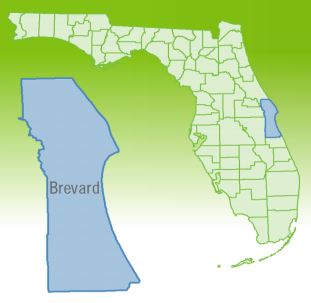Top 10 Tips Every Renter Should Know
Top 10 Tips Every Renter Should Know
Top 10 Tips Every Renter Should Know
The number of U.S. renters has expanded significantly nationwide since the burst of the housing bubble. Between 2009 (the start of the housing market decline) to 2013, the U.S. rental vacancy rate decreased 8.4 percent to 4.1 percent. Meanwhile, rents climbed 3.2 percent for all of 2013. Still, the demand for apartments remains strong. According to the U.S. Census ACS (2007-2011), renter households represented 34 percent of all households in the country. As such, it is important that renters know the proper steps to take to secure the property they desire and successfully navigate the rental landscape.
With increased activity in the rental space, renters who take the time to study the eccentricities of their particular market will fare better. The experts at Homes.com, with partner ForRent.com, have put together a list of the “Top 10 Tips Every Renter Should Know” – a comprehensive checklist to help renters get started on the right path to stress-free renting.
1. Be Prepared
When it comes to winning over your prospective property owner or management company, being prepared and organized is the best way to get a leg up on the competition. For a smooth approval process, be prepared with a completed rental application, written references from a previous property owner and/or employer, and your apartment hunting checklist.
2. Budget Wisely
Financial experts suggest that no more than 25 to 30 percent of monthly income be spent on housing. Be sure to create a realistic budget before deciding to move into a rental. Besides the cost of rent, consider the costs associated with your daily routines, including daily commute and lifestyle amenities like gym/fitness or a pool. It is wise to evaluate the direct and indirect costs saved or incurred by renting at a specific property. Lastly, confirm what is included in the lease agreement and who bears the responsibility for specific costs. Determining the party responsible for water and sewer, refuse, utilities, lawn maintenance, cable or internet costs, etc. is not always easy. That can often shift from lessee to lessor and vary from lease to lease.
3. Choose Which Amenities Are Important
Consider which amenities you and your family really need. Although a large number of amenities can be very attractive and enticing, be honest about which ones are essential. Being able to compromise on some amenities – like an outdoor pool or water view -- may result in finding a home in a better location that is closer to your favorite activities. Don’t get caught up in all the bells and whistles and forget about all the other important factors that go into choosing your perfect rental home.
4. Decide on Ideal Location
One main thing to keep in mind is location. What is most important? Is the school district the number one priority? Do you prefer being close to the action of the city or to the laid-back country lifestyle? Use the search feature on Homes.com to easily search rentals by zip code and find listings in nearby locations. This will ensure you don’t miss your dream home in the locations that best fit your personality.
5. Search Outside the Box
It's up to each individual to select the best rental option based on budget and personal preference. Prospective renters should review the varying rental types -- from residential apartment buildings and multi-unit rentals, to extending their search to single-family homes and/or townhomes. There are often great deals to be uncovered, especially if the rent will be split with roommates. Still nothing catching your interest? Take a look at the for sale listings. People aren't typically selling unless they have to, so they may be willing to rent listed homes or condos instead.
6. Never Sign a Lease without Visiting the Property First
It is important to visit the apartment you will actually be living in, not just the apartment model. Carry out a walk-through of the entire space before signing a lease. Make sure that all of the faucets and appliances work, open all cabinets and closets, and be aware of any issues that need to be taken care of prior to moving in.
7. Review the Lease Agreement Thoroughly
Make sure to review and understand all of the terms and conditions outlined in the leasing agreement before signing. There could be restrictions or clauses that inhibit how you want to live. Details to pay attention to include the effective date of commencement and duration, security deposit amount paid (whether it is interest-free or not), and the circumstances that make the deposit refundable. Additionally, consider rent escalation, grounds for termination, and the notice period required for termination of the lease. It may be possible to negotiate the specifics of some of the terms, but most important is being knowledgeable about lease details to make the best decision.
8. Purchase Renters Insurance
What are your personal belongings worth? While the landlord or property management company has an insurance policy for the property you are renting, that does not mean your personal belongings are covered. Purchasing renters insurance covers you and your belongings in most instances of theft and damage, including natural disasters. It also protects you from anyone who claims to have been injured in your rental due to your fault or negligence. While renters insurance rates vary from state to state, there are great options available. The average cost for renters insurance is about $12 per month to cover $30,000 worth of property, according to Independent Insurance Agents & Brokers of America (IIAB).
9. Take the Steps Necessary to Get Your Security Deposit Back
Do an extensive walk-through of the space, taking pictures and/or video of what the rental looks like on the day you move in as well as when you move out. Keep documentation of repairs, upgrades and any modifications made to the property while you are living there. When your lease term has ended, insist on completing a final walk-through with the property owner. That way, both parties can compare the space before and after your occupancy. Familiarize yourself with the security deposit terms outlined in your lease. If property management ever changes, request a review with them to ensure both parties are on the same page. Finally, request that your security deposit be returned to you in a timely manner.
10. Be Efficient with Space
Once you have found the place of your dreams on Homes.com, make it your own. Take advantage of wireless technology and multi-use fixtures/storage to eliminate any unnecessary clutter from your apartment. Putting your furniture on casters makes for easy redecorating. Use temporary décor ideas to turn your rental into a home, making you feel renewed and unique without making significant changes or spending a lot of money.
Source: Homes.com
Reprinted with permission from RISMedia. ©2014. All rights reserved.






